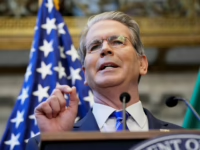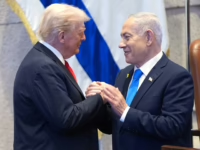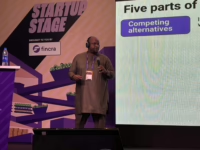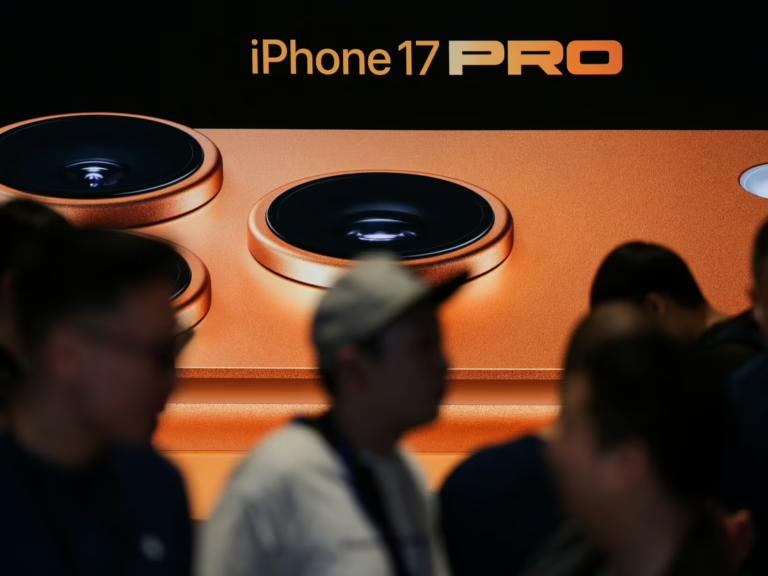Amid escalating tensions between Washington and Beijing, Apple has reaffirmed its commitment to expanding investments in China.
During a recent meeting in Beijing, Apple’s CEO Tim Cook conveyed to China’s Industry Minister Li Lecheng that the company intends to continue its financial engagement in the Chinese market, according to an official summary released by the Chinese government.
Details regarding the scale of this prospective investment were not disclosed.
As the United States and China, the world’s two largest economies, remain at odds over tariffs and trade policies, many American corporations have adopted a cautious stance toward their operations in China. This caution is further influenced by President Donald Trump’s push to bolster domestic manufacturing within the US.
Despite these challenges, Apple, headquartered in California, has largely avoided the direct impacts of the ongoing trade conflict. In contrast, other tech giants like Nvidia and Qualcomm have faced scrutiny through Chinese regulatory investigations.
The US government has maintained sanctions against several Chinese firms, including Huawei, intensifying the complex business environment.
A Shanghai-based government affairs expert, speaking anonymously due to media restrictions, explained to Reuters that US companies are navigating a delicate balance: they must avoid provoking the White House, which could penalize them domestically for appearing overly aligned with China, while simultaneously demonstrating genuine commitment to the Chinese market.
In August, Cook presented President Trump with a bespoke plaque crafted in the US and mounted on a 24-carat gold base, symbolizing Apple’s “American Manufacturing Program.” This followed Apple’s announcement of a $100 billion investment aimed at boosting domestic production.
Babak Hafezi, CEO of Hafezi Capital, an international consultancy, suggested to Al Jazeera that Apple’s dual investment announcements might be strategic gestures rather than concrete plans, possibly pre-approved by the administration to maintain favorable relations.
Earlier this year, during Cook’s visit to China in March, Apple unveiled a $101 million clean energy fund to support sustainable initiatives within the country.
While China remains central to Apple’s supply chain-where the majority of iPhones are assembled-the company has also been diversifying by shifting some manufacturing operations to India.
Hafezi noted that expanding production in India serves as a strategic move to diversify supply chains, enhance operational resilience, and reduce geopolitical risks.
Recently, Apple’s Chief Operating Officer Sabih Khan visited Lens Technology, a Chinese glass manufacturer that has supplied Apple with glass covers for products like the iPhone and Apple Watch for nearly two decades, according to a statement from the Changsha-based company.
Industry Minister Li Lecheng, who oversees China’s information technology sector, expressed hope that Apple will deepen its engagement with the Chinese market and continue collaborating with local suppliers. He assured that China remains committed to fostering a favorable business climate for foreign enterprises, including Apple.
Expansion in the Chinese Market
According to data from research firm IDC, Apple’s shipments in China increased by 0.6% year-over-year to 10.8 million units in the third quarter, despite a generally sluggish smartphone market in the country.
Driven by the success of the iPhone 17 series, Apple was the only one among China’s top three smartphone brands to report shipment growth during this period.
During his visit, Cook toured Apple’s Shanghai retail store and engaged with local game developers as well as the creator of the popular Labubu doll series, sharing these experiences on China’s social media platform Weibo.
On Monday, Cook announced that the iPhone Air would soon be available for pre-order in China, following regulatory approval for major telecom operators to support its eSIM capabilities.
China’s ambassador to the US, Xie Feng, highlighted the role of business ties as a stabilizing force in Sino-American relations and a driver of practical cooperation during an event in Washington.
He emphasized that numerous American companies have chosen to invest in China, generating mutual benefits for both nations.
On Wall Street, Apple’s stock showed positive momentum, rising approximately 1% by mid-morning in New York.
These developments come amid heightened diplomatic strains. On Wednesday, US Treasury Secretary Scott Bessent announced readiness to impose new tariffs related to Russian oil imports.
Additionally, US Trade Representative Jamieson Greer criticized China’s recent restrictions on rare earth mineral exports, describing them as a stark violation of trade agreements reached over the past six months, raising concerns about the future of bilateral trade negotiations.





















